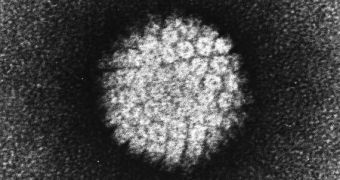A study conducted on unsuspecting lab mice shows that the human papillomavirus (HPV) may play a role in allowing nonmelanoma skin cancers to develop faster than they normally would. The results are very troublesome, considering the widespread nature of HPV infections.
Few people know that HPV vaccines exist, and that they can be administrated with extremely low costs. In some countries, vaccination campaigns are free, but people choose not to allow their own children to get the shot.
In the United States, HPV vaccines are touted as preventing endometrial and cervical cancer, but many parents fear that this may in fact encourage promiscuous behavior in teenage girls. So these children are not allowed to take the vaccine.
Experts suspected for a long time that the virus was also involved in accelerating the development of specific types of skin cancer, but they were unable to establish a direct link until now. The new study finally provides the necessary evidence.
In the experiments, mice were purposefully infected with a strain of the virus called HPV38. When the rodents were exposed to ultraviolet light, they were more likely to develop squamous cell carcinoma than mice who were exposed to this type of light as well, but were not infected.
This finding is very important because it shows that it could be possible to develop a vaccine against skin cancer similarly to how a vaccine against cervical cancer was produced years ago. The fact that HPV strains are active in both forms of cancer gives experts the break they've been looking for.
The investigation was conducted by experts at the German Cancer Research Center, who were led by the head of the division of genome modifications and carcinogenesis, Dr. Lutz Gissman. The study was published in the July 14 issue of the top journal PLoS Pathogens.
Experts at the American Cancer Society say that nonmelanoma cancers develop in humans on areas of the body that are exposed to the ultraviolet component of sunlight. These cancers tend to remain localized, and not spread throughout the body.
Official statistics from the US National Cancer Institute show that, of the 1 million new cases of skin cancer being reported in the country each year, only about 1,000 are deadly. Still, having a vaccine to counteract the disease could reduce that number even further, My Health News Daily reports.

 14 DAY TRIAL //
14 DAY TRIAL //